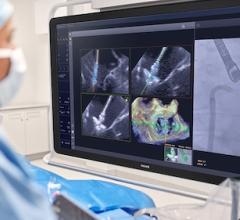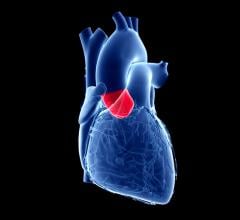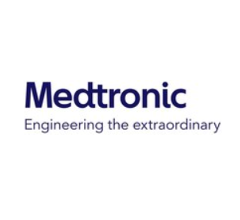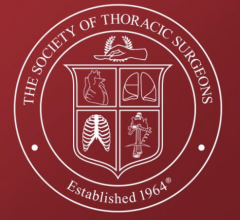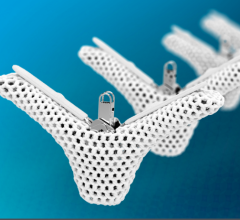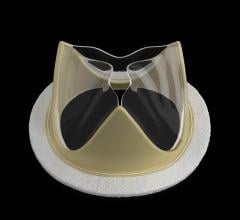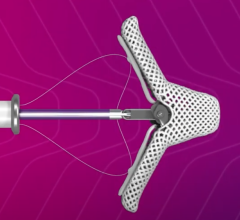Boston Scientific recently purchased the Sadra Lotus heart valve technology to help create a structural heart product line.
In January the U.S. Food and Drug Administration (FDA) approved a big modifcation to the CoreValve U.S. pivotal clinical trial — eliminating the medical management arm of the study. The trial, which began in December, originally randomized extremely high-risk surgical patients in need of an aortic valve replacement for either a CoreValve transcatheter valve replacement or optimal medical therapy. In the revised trial design, all patients will now receive a transcatheter valve and none will be randomized to medical management.
The reason for the change was based on data from the Edward’s Sapien transcatheter aortic valve PARTNER trial Cohort B results, which were presented last fall at Transcatheter Cardiovascular Therapeutics (TCT) 2010. That trial also randomized very sick, inoperable patients to either transcatheter valve replacement or to be maintained on optimal medical therapy. Data showed vast improvements in patients receiving the valves, but little to no improvement in patients on medical therapy. Many top cardiologists at TCT said if the results were so lopsided in favor of transcatheter valves, it calls into question the ethics of continuing to randomize patients to a drug therapy that does not work.
The FDA agreed with this assessment, showing the regulatory agency recognizes the efficacy of transcatheter valves over the current standard of care for these patients. If continued positive data continue to come out of PARTNER and CoreValve, it will pave the way for the eventual paradigm shift from surgical to transcatheter heart valve replacements.
The modified CoreValve trial’s primary endpoint is all-cause death or major stroke within 12 months. It will enroll about 1,300 patients at 40 U.S. sites.
Vendors Expand Structural Heart Portfolio
With the industry’s move away from open cardiac surgery to less invasive transcatheter procedures, several interventional companies have created transcatheter structural heart divisions in the past two years. A large part of this expansion, as with St. Jude, Medtronic and Abbott, has been through purchasing smaller startup companies.
Boston Scientific is the latest to create a structural heart division in January with the purchase of two companies. It completed its acquisition of transcatheter aortic valve developer Sadra Medical for $193 million, with additional payments of up to $193 million, contingent upon achieving regulatory and revenue goals set through 2016. Sadra is developing the first fully repositionable device for percutaneous aortic valve replacement. It recently completed a series of European feasibility studies for its Lotus Valve System, which consists of a stent-mounted tissue valve prosthesis and catheter delivery system for guidance and placement of the valve. The low-profile delivery system and introducer sheath are designed to enable accurate positioning, repositioning and retrieval at any time prior to release of the aortic valve implant.
Boston Scientific also signed a merger agreement to acquire Atritech Inc., developer of the Watchman device. It closes the left atrial appendage (LAA) in patients with atrial fibrillation who are at risk for ischemic stroke. The goal of the device is to eliminate the need to maintain patients on warfarin therapy. The agreement calls for an upfront payment of $100 million, plus additional payments of up to $275 million upon achievement of regulatory and revenue-based milestones through 2015.
Atritech is currently enrolling patients in the PREVAIL study, a confirmatory study designed to gain U.S. Food and Drug Administration approval. The Watchman device is CE-marked and was commercialized outside the United States in 2009.
Unified CVIS Virtual Conference
Many cardiovascular departments confront major obstacles to smooth connectivity between imaging systems, diagnostic devices, picture archiving and communication systems (PACS), hemodynamics, reporting software, electronic medical records (EMR) and hospital information systems (HIS). For this reason, Diagnostic & Interventional Cardiology (DAIC) magazine is hosting the Unified Cardiovascular Information Systems (CVIS) Virtual Conference. During several Web-seminars on Thursday, March 17, experts will explain what is needed to create a truly vendor-neutral system. See page 28 for more information.
New Transradial Access Feature Section
DAIC’s newest Editorial Board member is Adhir Shroff, M.D., MPH, assistant professor of medicine, director of the interventional cardiology fellowship program and director of the cardiovascular catheterization laboratories at the University of Illinois at Chicago (UIC) Medical Center.
Along with his staff and in collaboration with cath lab staff at the Jesse Brown VA Medical Center, he created a new feature section in the magazine dedicated to transradial access. The Transitioning to Transradial section, pages 24-26, explains how to implement a radial program and highlights some of the latest studies and research concerning transradial access tools and techniques. UIC and Jesse Brown run joint training seminars for cardiologists transitioning to transradial access, which they believe is better for both patients (fewer bleeding complications, less pain) and hospitals (fewer readmissions and to create an out-patient cath lab program).

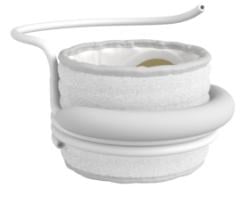
 December 24, 2025
December 24, 2025 
